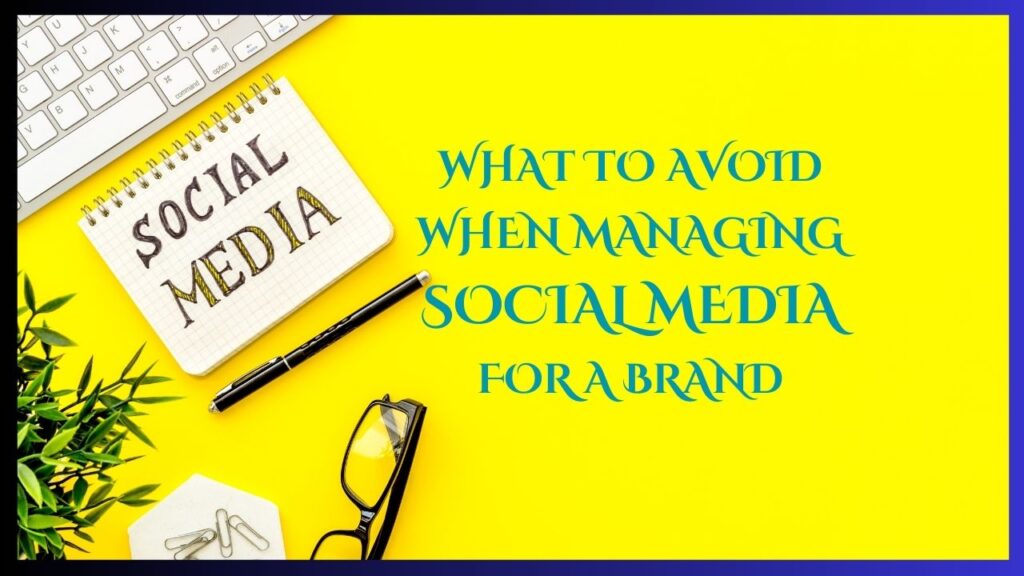
In today’s digital age, social media has transformed the way businesses operate, connect with customers, and grow their brands. With nearly 5 billion active users worldwide, social media isn’t just a trend—it’s a vital marketing tool. If you’re wondering, what are the positive impacts of social media on business, the answer is profound. From increased brand awareness to improved customer engagement, the benefits are clear and far-reaching.
But what exactly makes social media such a game-changer for businesses? Let’s dive deep into the positive impacts of social media on business and explore how it can revolutionize your company.
1. Boosts Brand Awareness
Social media gives businesses a platform to build their brand presence like never before. In the past, businesses relied on traditional advertising—TV commercials, radio ads, and billboards—to reach potential customers. While these methods worked, they had limitations. Social media breaks those barriers, allowing brands to reach a global audience with just a few clicks.
Take, for example, the story of GoPro. Initially, GoPro was a small company selling action cameras. Through social media marketing, they encouraged their customers to share their own adventure videos online. This user-generated content skyrocketed their visibility, turning GoPro into a household name in the outdoor sports world.
Key tip: Share engaging, relatable content regularly to stay at the top of your audience’s mind. Create posts that align with your brand values and resonate with your target audience.
2. Enhances Customer Engagement
The rise of social media has made it easier for businesses to engage directly with their customers. Platforms like Facebook, Instagram, and Twitter allow companies to have two-way conversations with consumers, whether it’s to provide customer support or get feedback on a product.
For instance, consider the global brand Nike. Their Twitter account, @TeamNike, provides customer support seven days a week, addressing questions, resolving issues, and engaging with customers on a personal level. This kind of personal interaction creates a bond of trust between the brand and the consumer, fostering brand loyalty.
Pro tip: Always respond to customer inquiries or feedback promptly. It not only solves problems but shows your audience that you care about them. Over time, this will build stronger relationships and increase customer retention.
3. Drives More Traffic to Your Website
When you share content on social media, you’re creating additional pathways that lead to your website. Each post, image, or video is an opportunity for potential customers to click through to your website and explore your offerings. This increase in inbound traffic can help businesses generate more leads and eventually convert them into customers.
Imagine you run a small online clothing store. Posting pictures of your latest collection on Instagram, along with an enticing description, can encourage followers to visit your website to make a purchase.
Without social media marketing, your traffic is limited to your existing customer base and those who happen to find you through search engines. With social media, your potential audience grows exponentially.
Best practice: Make sure every post links back to a specific landing page or product page on your website to maximize conversions. Use call-to-action phrases like “Shop Now” or “Learn More” to guide users toward taking the next step.
4. Improves Search Engine Rankings
Many business owners don’t realize that social media can improve search engine optimization (SEO). While social media posts themselves don’t directly contribute to ranking factors, sharing your content widely increases its visibility, driving more traffic to your website. The more visitors you attract, the more search engines like Google recognize your content as relevant, which can boost your ranking.
For example, imagine you run a blog that gives financial advice. By consistently sharing your blog posts on LinkedIn or Twitter, your articles gain more readers, increasing the likelihood of backlinks, shares, and website visits—all factors that contribute to higher search rankings.
Pro tip: Include relevant keywords in your social media profiles and posts. This helps with semantic SEO, which in turn, enhances your visibility.
5. Allows for Targeted Advertising
One of the most powerful aspects of social media marketing is its ability to deliver highly targeted ads. Unlike traditional marketing, where ads are shown to a broad audience, social media platforms let you target specific demographics based on age, location, interests, and even behaviors.
Let’s say you’re a local bakery offering vegan cakes. With Facebook ads, you can create a campaign specifically targeting vegan food enthusiasts within your city, ensuring that your message reaches the right people.
This precision marketing allows businesses to allocate their budget more effectively and get a higher return on investment (ROI).
Best practice: Use A/B testing to try out different ads and see which ones resonate best with your target audience. This helps refine your strategy and improve your results.
6. Generates Leads at a Lower Cost
Social media marketing is one of the most cost-effective ways to generate new leads. Unlike traditional advertising, which often requires a large upfront investment, most social media platforms allow you to set your budget and pay only for results, such as clicks, views, or conversions.
For small businesses and startups, this is a game-changer. It means you can compete with bigger brands on a more level playing field.
For example, a startup selling eco-friendly products can run Instagram or Facebook ads on a modest budget. By targeting eco-conscious consumers, they’re more likely to attract potential customers at a fraction of the cost of a billboard or TV ad.
Key insight: “Positive impacts of social media”, Social media levels the playing field. You don’t need a massive budget to make a big impact—you just need the right strategy.
7. Provides Valuable Customer Insights
Social media platforms like Facebook Insights, Twitter Analytics, and Instagram Insights offer businesses valuable data about their audience’s behavior and preferences. You can track metrics like engagement rates, impressions, clicks, and more. This information can help you tailor your content and strategies to better meet the needs of your audience.
For example, if you find that a particular type of post, such as behind-the-scenes videos, consistently receives high engagement, you can create more of that content to keep your audience interested.
Tip: Make data-driven decisions by analyzing your social media metrics regularly. This will help you improve your performance over time and maximize your results about the positive impacts of social media.
8. Builds Brand Loyalty
Customers who follow you on social media are more likely to stay loyal to your brand. By engaging with your audience regularly, responding to their comments, and providing useful content, you create a community around your business.
One great example of this is Starbucks. They regularly engage with their customers on platforms like Twitter and Instagram by sharing content, responding to feedback, and even offering rewards to their followers. This keeps their customers feeling connected to the brand and encourages repeat business.
Pro tip: Offer exclusive discounts or promotions to your social media followers to make them feel special and valued. This can go a long way in building long-term loyalty.
9. Allows You to Monitor Competitors
Social media not only helps you engage with customers but also gives you a chance to keep an eye on your competition. By monitoring their activity, you can learn what strategies they’re using, what content is resonating with their audience, and how you can differentiate your brand.
For instance, if you notice that your competitor’s posts about eco-friendly initiatives are getting a lot of attention, you might consider highlighting your company’s sustainability efforts as well.
Best practice: Use tools like Hootsuite or Sprout Social to track your competitors’ social media activity and stay ahead of the game. Discover “what are the Positive Impacts of Social Media on Business” and how it boosts brand awareness, customer engagement, and growth.
10. Encourages Word-of-Mouth Marketing
Word-of-mouth marketing has always been a powerful tool for businesses, but social media has amplified its reach. Today, when people have a great experience with a brand, they’re likely to share it with their followers, friends, and family.
Consider the example of Threadless, a company that allows users to submit and vote on T-shirt designs. Threadless gained widespread popularity because its customers were excited to share their designs on social media, leading to viral word-of-mouth marketing that boosted their sales.
Key insight: Encourage your satisfied customers to share their positive experiences on social media. This will help you reach a broader audience and build trust with potential customers by positive impacts of social media.
11. Increases Sales and Conversions
Finally, one of the most tangible positive impacts of social media on business is its ability to drive sales. Whether you’re using social media ads, influencer marketing, or organic posts, these platforms offer multiple ways to convert followers into paying customers.
For example, brands like Glossier have built entire business models around social media by encouraging customers to share their products on Instagram. This not only generates brand awareness but also drives sales through peer recommendations.
Best practice: Make it easy for users to make purchases directly from your social media profiles. Platforms like Instagram now offer shoppable posts, allowing customers to buy your products with just a few taps.
Conclusion: The Power of Social Media for Business
The question, what are the positive impacts of social media on business, can be answered with one simple word: transformation. Social media has revolutionized the way businesses operate, connect with customers, and grow. From boosting brand awareness and customer engagement to driving sales and building brand loyalty, the benefits are clear.
To harness the full potential of social media marketing, it’s essential to develop a thoughtful strategy, engage regularly with your audience, and continuously measure your results. Whether you’re a small startup or an established brand, social media can help take your business to new heights. Discover “what are the Positive Impacts of Social Media on Business” and how it boosts brand awareness, customer engagement, and growth.



